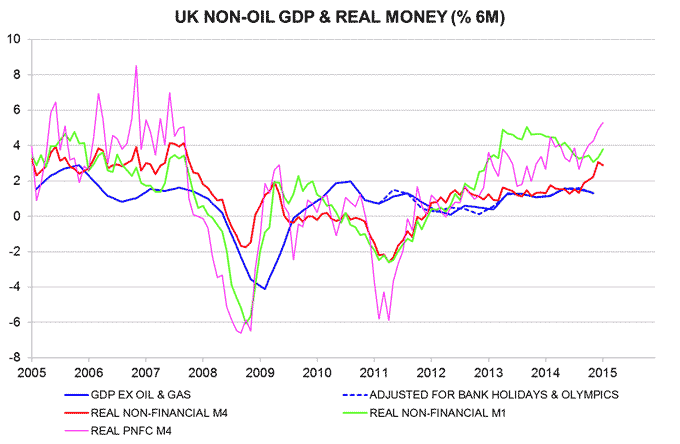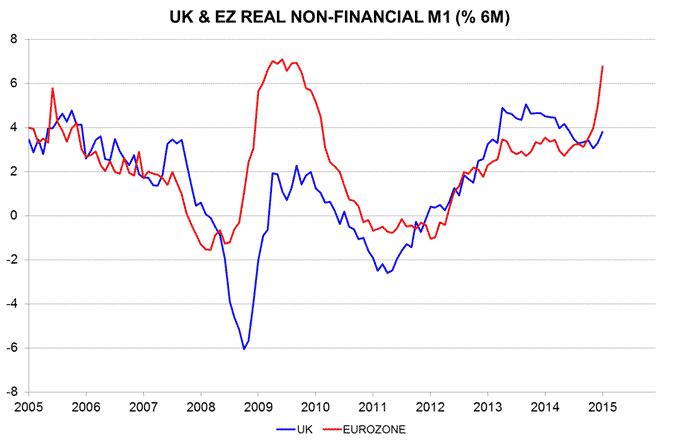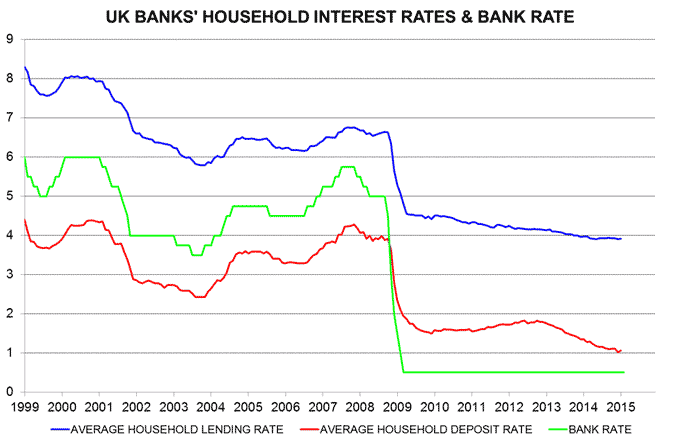UK money trends still positive, pensioner bonds affecting data
UK monetary trends remain consistent with solid economic growth. Broad money was held back in January by a transfer of funds out of bank deposits into the new National Savings pensioner bonds. Narrow money was less affected by this shift and continues to expand strongly, though is now lagging the equivalent Eurozone measure.
The Bank of England’s favoured broad money measure – M4 excluding holdings of “intermediate other financial corporations”, or M4ex – rose by 0.1% in January but was depressed by a record £6.6 billion monthly inflow to National Savings, reflecting strong demand for 65+ pensioner bonds. This largely explains a £10 billion withdrawal from household interest-bearing deposits. National Savings inflows were in a £400-700 million range in the prior six months, suggesting a £6 billion impact from the new bonds, equivalent to 0.3% of M4ex.
Chancellor George Osborne last month announced that the bonds would remain on sale until 15 May, with take-up now expected to reach £15 billion, or 0.8% of M4ex.
Narrow money M1 – comprising physical cash and sight deposits – appears to have been little affected by the bond sales, rising by a solid 0.8% in January.
The forecasting approach here focuses on six-month growth of real (i.e. inflation-adjusted) “non-financial” M1 and M4, covering holdings of households and private non-financial firms (i.e. excluding all financial corporations). Both measures are still giving a positive message for economic prospects – see first chart.
Corporate M4 holdings are growing particularly strongly – encouraging since corporate liquidity is better correlated with future economic growth than household M4.
Real money trends, however, are now stronger in the Eurozone than the UK, suggesting that the period of UK economic outperformance since 2011 is ending – second chart.
Increased competition from National Savings probably contributed to a small uptick in the average interest rate on household bank deposits in January. Deposit and, to a lesser extent, lending rates trended lower over 2013-14, delivering a stealth loosening of monetary policy – third chart. This boost is now fading.




Reader Comments